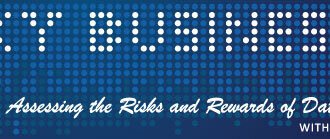“The R-Files” is an occasional series from Revolution Analytics, where we profile prominent members of the R Community.
“The R-Files” is an occasional series from Revolution Analytics, where we profile prominent members of the R Community.
Name: Paul Teetor Profession: Quantitative developer (freelance) Nationality: American Years Using R: 7 Known for: Author of R Cookbook (O’Reilly Media, 2011) |
An active member of the R community, Paul Teetor is a quantitative developer and statistical consultant based in the Chicago area. He’s been using R for seven years, during which time his contributions to the community have been significant — particularly in the field of finance. He’s currently a freelance consultant largely focused on time series analysis. Teetor is also the author of the popular R Cookbook, which was published by O’Reilly Media this past March and offers new users over 200 “recipes” for performing more efficient data analysis with R.
He was first drawn to R for the flexibility it offered him in developing trading systems. Citing his own background in software engineering and the need to perform sophisticated statistical analysis in a programmable — and cost-effective — environment, Teetor said that R emerged as the perfect fit for him. Since then, he has performed the majority of his financial analyses in R and has also emerged as a leading evangelist for the community. He gradually collected a catalog of tricks and techniques for R, many of which were compiled into the R Cookbook. He’s been a participant at conferences such as the Joint Statistical Meetings and the R/Finance Conference where he evangelized the role of R in quantitative finance. Some of those talks and papers are available on his website.
“Prior to R, I did most of my statistical analysis in Excel — and occasionally SAS,” said Teetor. “However, performing statistical analyses for financial tables in either was extremely tedious and puts you in a specific box. R is a modern, programmable language, so I can make it do what I need it to do in a timely manner. It’s been a pleasure to be able to take what I’ve learned from R and share it with other community members – and to continue learning new tips and tricks from them as well.”
Teetor uses R for the majority of his finance work because, as he puts it, it does things other languages “simply cannot do.” He cited the example of hedge ratio calculations which benefit from the flexibility of R, a topic on which he gave a lightning talk at R/Finance this past summer. He was also quick to credit fellow R user Jeff Ryan (whom we profiled here earlier this year) as an influential member of the R community, citing his finance packages as particularly useful. “I use nearly every finance package he’s written, they’re incredibly helpful and greatly streamline the process of R-based financial analysis.”
When asked about the relationship between financial analysis and the rise of the data science movement, Teetor noted, “People in data science are experiencing what financial analysts have experienced for years: out of the box data analysis is not realistic. You need to incorporate a heavy amount of custom statistics, something that’s not easy to do with a commercial product where you can’t get to the source code. Data scientists need a way to construct custom analyses and R gives them that opportunity. Nothing else on the horizon that can compete with that, in terms of finance or the wider field of data science.”
Looking ahead, Teetor sees a bright future for the continued evolution of R. Since there is no real alternative on the market, he argues, R’s potential for future growth is nearly unlimited. He did, however, cite R’s capacity (or lack thereof) for software engineering as one possible area of improvement. “When R was originally envisioned, it wasn’t thought of as a vehicle for software engineering. Nobody expected people to keep their scripts as opposed to just throwing them away. As it’s grown though, people are building larger, more complex systems with longer lifetimes.” It’s an area that Teetor cites as one of the main struggles with R today, but also one which he cites as a great opportunity on which to innovate.








